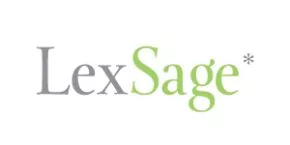On December 18, 2015, the Federal Court of Canada issued its decision in Master Tech Inc. v. The Minister of Public Safety and Emergency Preparedness (2015 FC 1395). The Canada Border Services Agency ("CBSA") detained four sets of machinery that Master Tech was exporting to Iran. As is typical, after the detention, the CBSA contacted other governmental departments to determine if the machinery was on the Export Control List (ECL) and/or whether export permits and/or permissions were required. The CBSA seized the machines as forfeit on the basis that Master Tech failed to obtain export permits. Master Tech filed a request for review and the CBSA determined that there had not been a contravention of section 131 of the Customs Act (that is, an export permit was not required). The Minister offered to return the seized goods to Master Tech and wrote to the company indicating that the goods could not be exported until the relevant federal agencies had approved the export. Master Tech filed an action in the Federal Court of Canada seeking an order allowing the machinery to be exported to Iran.
The Federal Court of Canada denied the request because Master Tech focused on the wrong legislation and not taken all legal steps required – the machines could not be exported to Iran. The initial seizure of the machinery was undertaken by the CBSA under the Customs Act. The Customs Act issues had been resolved. But, that did not mean that the machines could be exported. The machines were subject to unilateral and multi-lateral economic sanctions restrictions under the Special Economic Measures Act and United Nations Act and the Iran regulations under both acts (Special Economic Measures (Iran) Regulations, Regulations Implementing the United Nations Resolutions on Iran). The Export Controls Division of the Department of Foreign Affairs and Trade Development (now known as Global Affairs Canada) had determined that two of the machines were subject to an absolute economic sanctions prohibition and Master Tech had not provided sufficient information about one of the machines to enable them to determine if it was subject to economic sanctions against Iran. Master Tech had not filed a judicial review of these decisions. The Court could not authorize the export of these machines. The Canadian Nuclear Safety Commission had advised the CBSA that a fourth machine was likely controlled under the Nuclear Non-Proliferation Import and Export Control Regulations. Master Tech had not applied for a license to export the fourth machine. The Court could not authorize the export of this machine. In short, the Court determined that it could not grant the relief requested. The Court could not order the Minister of Public Safety to allow the export of the machinery to occur.
This case highlights that export controls and economic sanctions enforcement involve may involve many different Canadian government bodies. If an exporter exporting goods to Iran tries to export first and ask questions later, they cannot force the CBSA to allow the export. Export Controls Division and the Canadian Nuclear Safety Commission make decisions about the issuance of export permits and authorizations. The CBSA is the gatekeeper with statutory authority to detain exports that may not have the proper paperwork. The gatekeeper does not have to open the gate if the proper approvals will not be provided by the relevant governmental authorities.
I would like to add that the Honourable Mr. Justice O’Reilly has written a good decision. Export controls and economic sanctions issues are not regular matters heard by judges of the Federal Court of Canada. The decision is simple to understand (if one understands the basics of economic sanctions and borer laws).
I have been informed that Master Tech was self-represented for much of the proceeding and hired a lawyer near the trial date. Master Tech has also filed a judicial review application with respect to the CBSA detention of the machines, which became moot when the CBSA determined there had not been a contravention. Master Tech had filed requests for export permits after the CBSA detained the machines and the Export Controls Division denied the export permit applications. Master Tech did not file a judicial review of the denials of the export permits. Master Tech may file new export permit and license applications and may judicially review any new denials. There still may be more litigation on whether the machines can be exported to Iran. Master Tech has also filed a claim against the Minister of Public Safety and Emergency Preparedness to complain about the treatment received by the company. Whether or not the allegations have merit and whether the action is statute barred are issues before the Federal Court. Stay tuned for more on this Canadian economic sanctions case.
The content of this article is intended to provide a general guide to the subject matter. Specialist advice should be sought about your specific circumstances.


